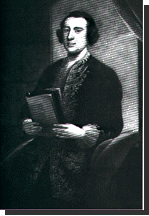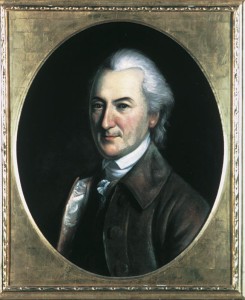The Stamp Act was repealed. The American colonists were deliriously happy that the controversy was ended. So what if the Parliament simultaneously passed the Declaratory Act, which stated that Parliament had the authority to do whatever it pleased? Most of the colonists seemed to believe it was just a face-saving measure and were willing to let Parliament blow off some steam and trust that everything was back to normal.
It wasn’t.
 Charles Townsend, the new treasury secretary for the Mother Country, came up with another series of revenue-producing measures that sailed through Parliament, and they were aimed directly at those American colonies.
Charles Townsend, the new treasury secretary for the Mother Country, came up with another series of revenue-producing measures that sailed through Parliament, and they were aimed directly at those American colonies.
The Townsend Acts were another round of taxes imposed on colonists who had no representation in Parliament. This time the taxes were laid on tea, lead, paper, and glass. To make them even more onerous, British troops were sent to Boston (which the British government considered the center of resistance) to help enforce the new acts. They didn’t want a repeat of the successful protest against the Stamp Act.
 The most significant pamphlet to appear as a response to the Townsend Acts was penned by John Dickinson, a Philadelphia lawyer and landowner (and a devout Christian). His arguments against the unconstitutional nature of the acts began as a series of letters to the newspaper. They were then collected into a volume entitled Letters from a Farmer in Pennsylvania.
The most significant pamphlet to appear as a response to the Townsend Acts was penned by John Dickinson, a Philadelphia lawyer and landowner (and a devout Christian). His arguments against the unconstitutional nature of the acts began as a series of letters to the newspaper. They were then collected into a volume entitled Letters from a Farmer in Pennsylvania.
Dickinson delved into the right of representation before being taxed and how important it was to stand for principle: no matter how small the tax might be, if it were to be allowed, the people would have sacrificed the principle of representation before taxation.
He also argued that the colonies would have to set aside their disagreements and unite as a common front against such encroaches on British liberties. Further, he appealed strongly for a peaceful and dignified settlement of arguments between colonies and Crown, a hallmark of his Christian character that exhibited itself throughout this constitutional debate period.
Those letters come down to us today as an example of solid reasoning with respect for the rule of law. Interestingly, Dickinson was later disparaged by some patriots for his refusal to sign the Declaration of Independence, but once it was passed by the Continental Congress, he gave the movement for independence his full support.
Was the British government impressed with Dickinson’s tightly reasoned essays? Did Charles Townshend back off on those taxes after reading what Dickinson wrote? What was the fate of the Townshend Acts?
That will be the subject of a future post.
